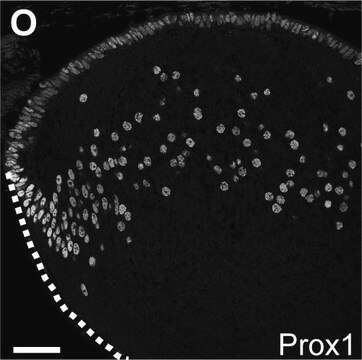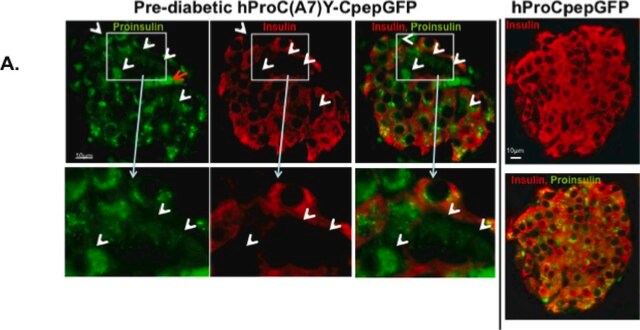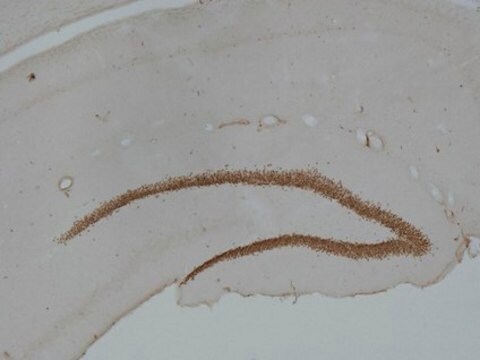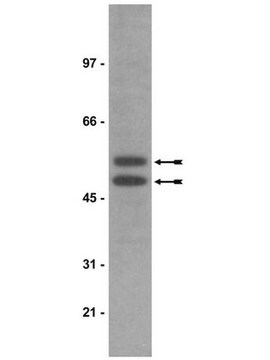P0089
Anti-Prox1 antibody , Mouse monoclonal
clone 4G10, purified from hybridoma cell culture
Synonyme(s) :
Anti-Homeobox prospero-like protein Prox1, Anti-Prospero homeobox 1
About This Item
Produits recommandés
Source biologique
mouse
Niveau de qualité
Conjugué
unconjugated
Forme d'anticorps
purified from hybridoma cell culture
Type de produit anticorps
primary antibodies
Clone
4G10, monoclonal
Forme
buffered aqueous solution
Poids mol.
antigen ~84 kDa
Espèces réactives
chicken, rat, lizard, human
Concentration
~1.5 mg/mL
Technique(s)
immunocytochemistry: suitable
indirect ELISA: suitable
indirect immunofluorescence: 2.5-5 μg/mL using paraformaldehyde fixed HepG2 cells
western blot: suitable
Isotype
IgG2b
Numéro d'accès UniProt
Conditions d'expédition
dry ice
Température de stockage
−20°C
Modification post-traductionnelle de la cible
unmodified
Informations sur le gène
human ... PROX1(5629)
rat ... Prox1(305066)
Description générale
Immunogène
Application
Actions biochimiques/physiologiques
Forme physique
Clause de non-responsabilité
Vous ne trouvez pas le bon produit ?
Essayez notre Outil de sélection de produits.
En option
Code de la classe de stockage
10 - Combustible liquids
Classe de danger pour l'eau (WGK)
WGK 2
Point d'éclair (°F)
Not applicable
Point d'éclair (°C)
Not applicable
Équipement de protection individuelle
Eyeshields, Gloves, multi-purpose combination respirator cartridge (US)
Certificats d'analyse (COA)
Recherchez un Certificats d'analyse (COA) en saisissant le numéro de lot du produit. Les numéros de lot figurent sur l'étiquette du produit après les mots "Lot" ou "Batch".
Déjà en possession de ce produit ?
Retrouvez la documentation relative aux produits que vous avez récemment achetés dans la Bibliothèque de documents.
Notre équipe de scientifiques dispose d'une expérience dans tous les secteurs de la recherche, notamment en sciences de la vie, science des matériaux, synthèse chimique, chromatographie, analyse et dans de nombreux autres domaines..
Contacter notre Service technique







